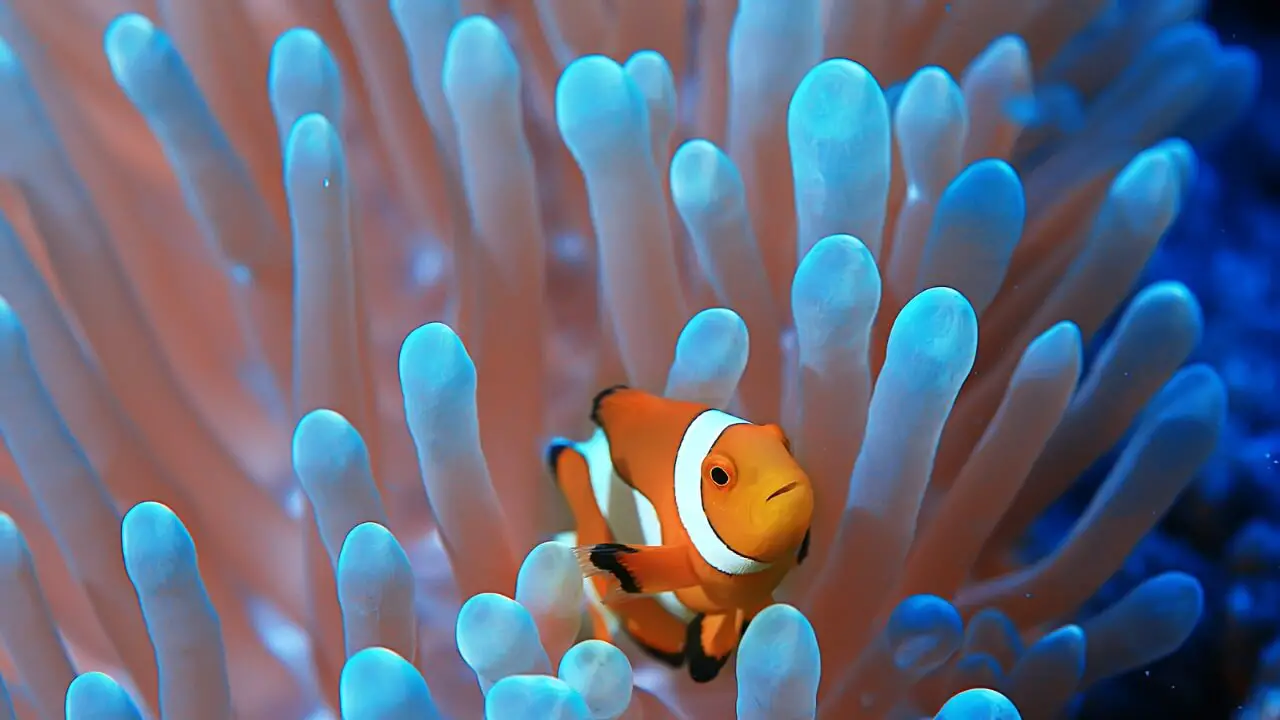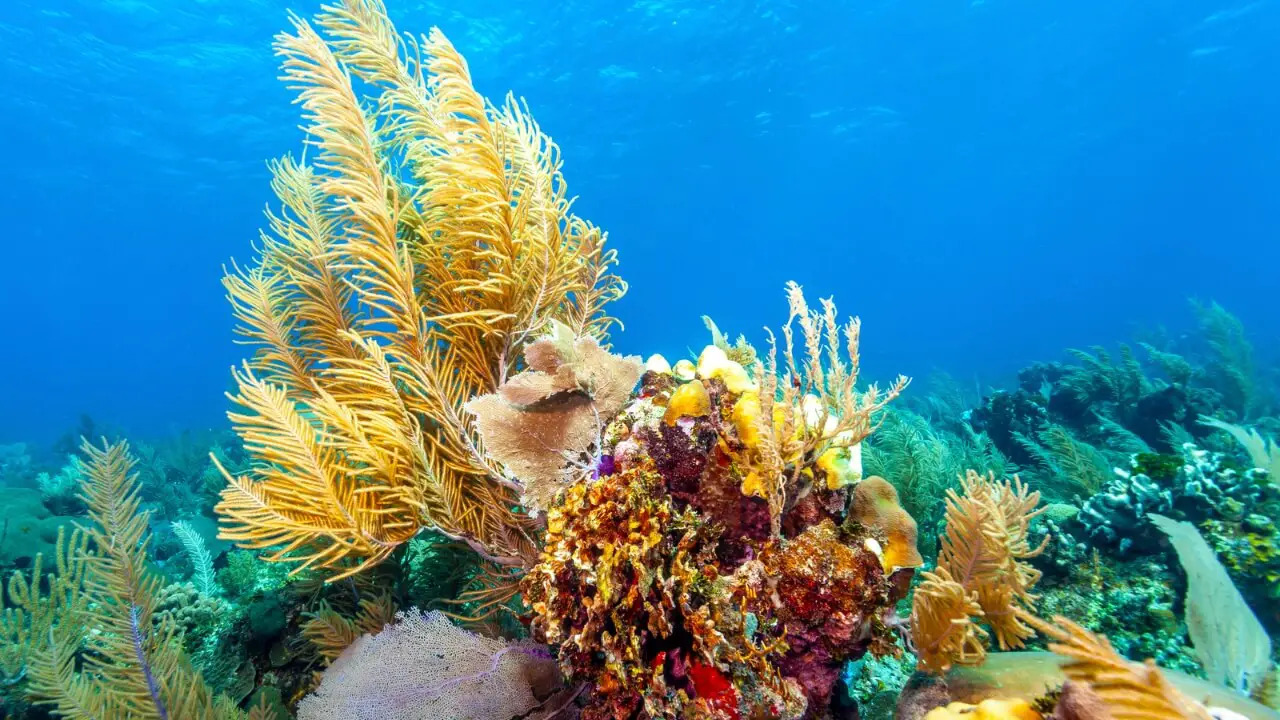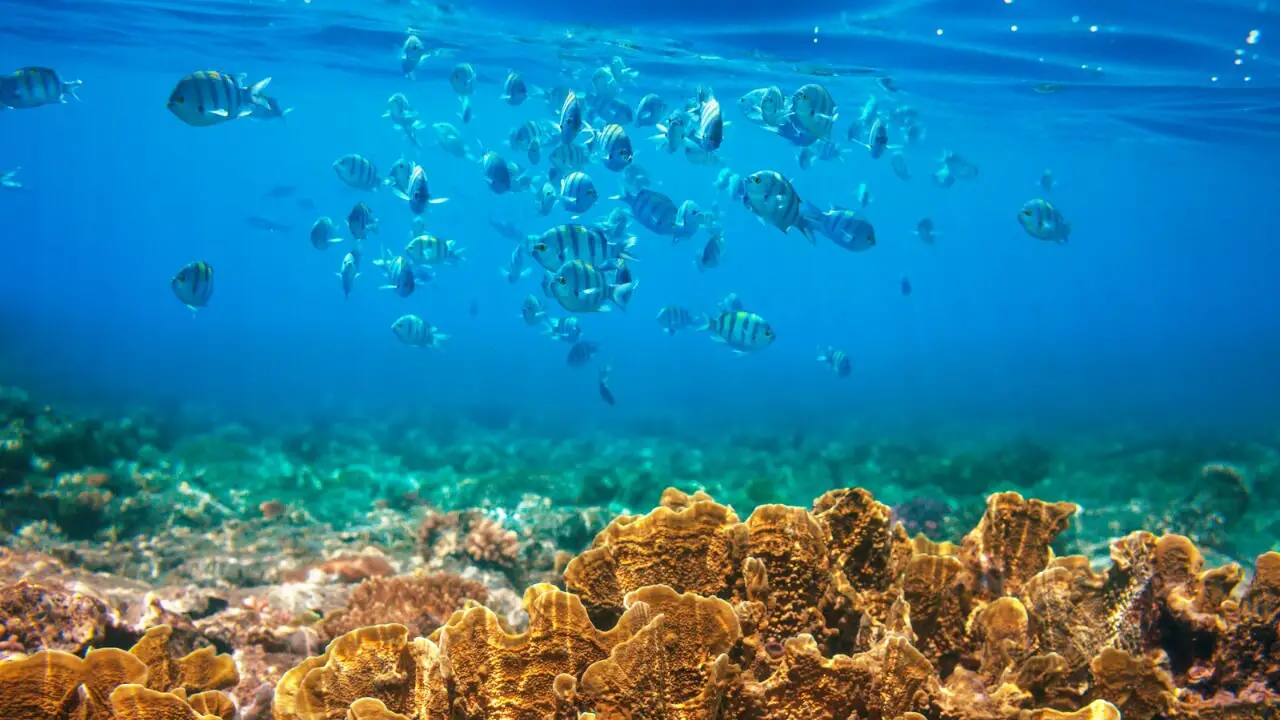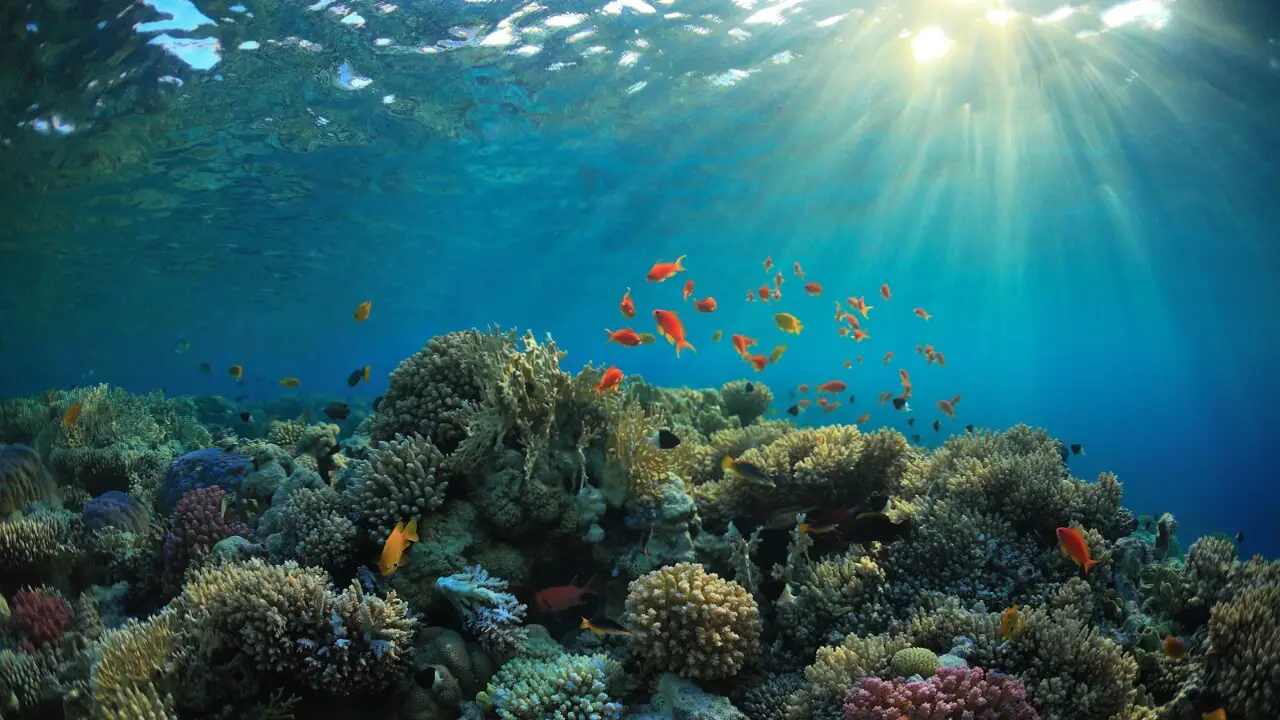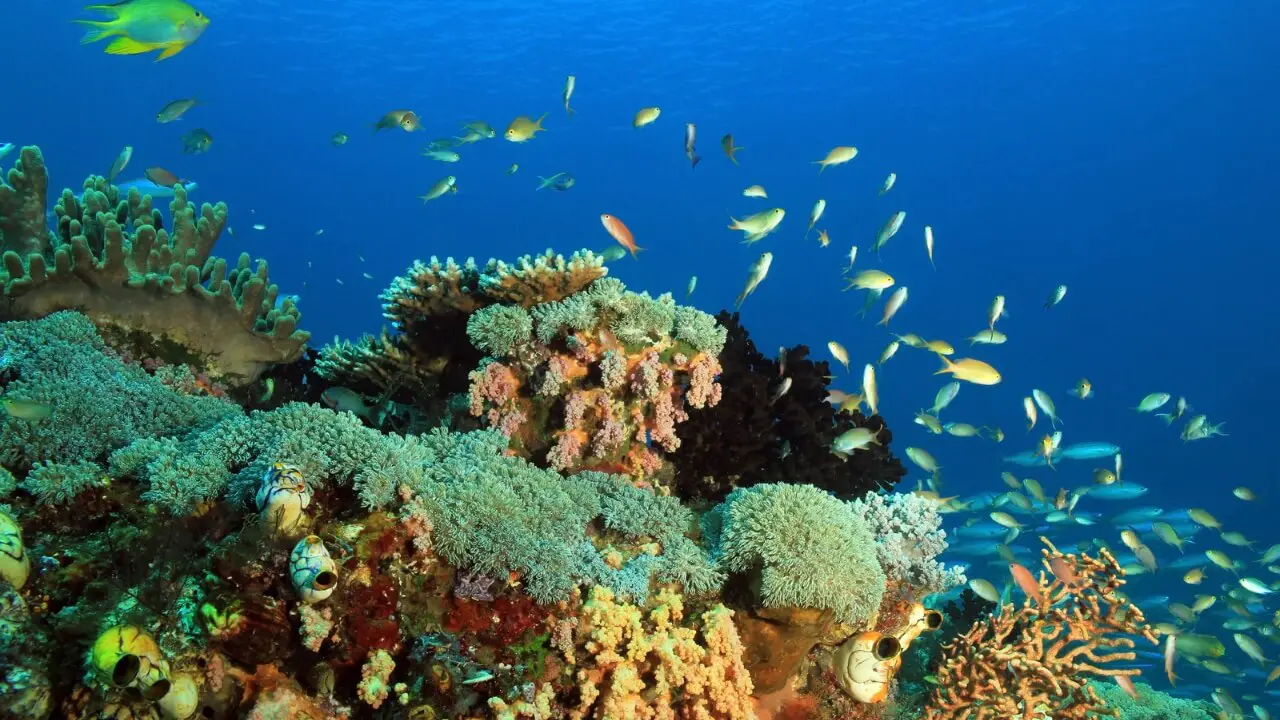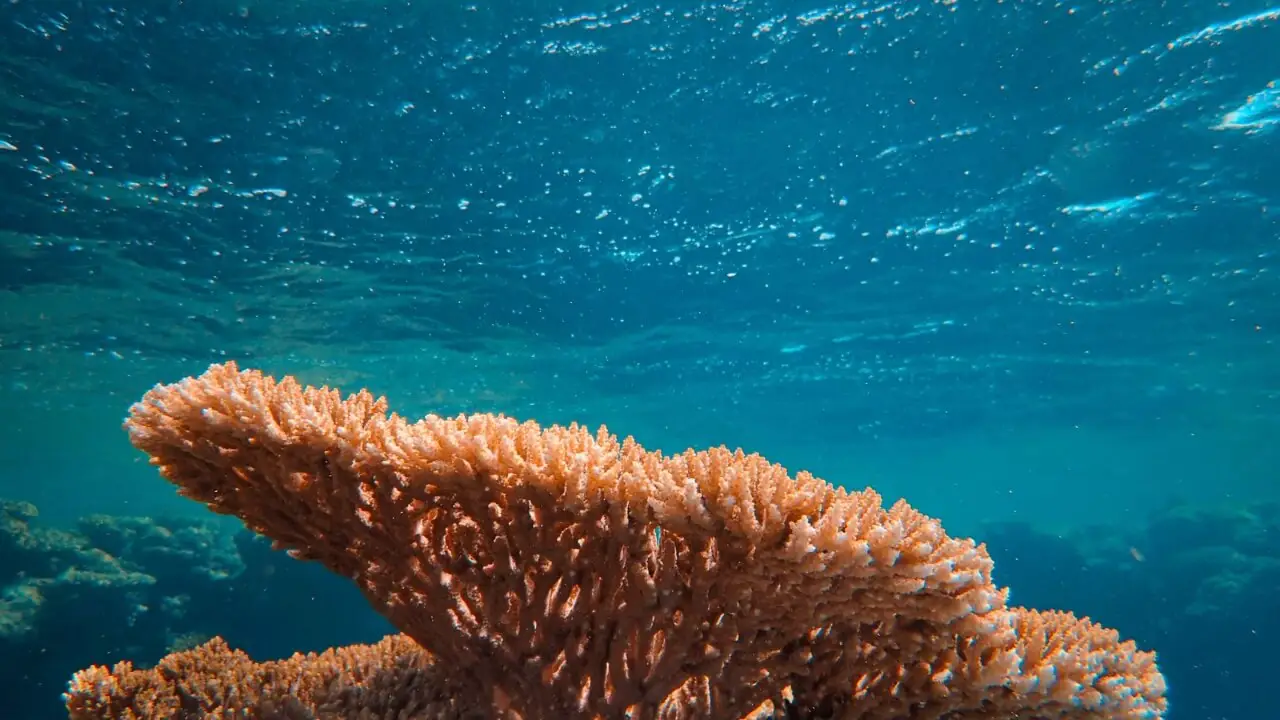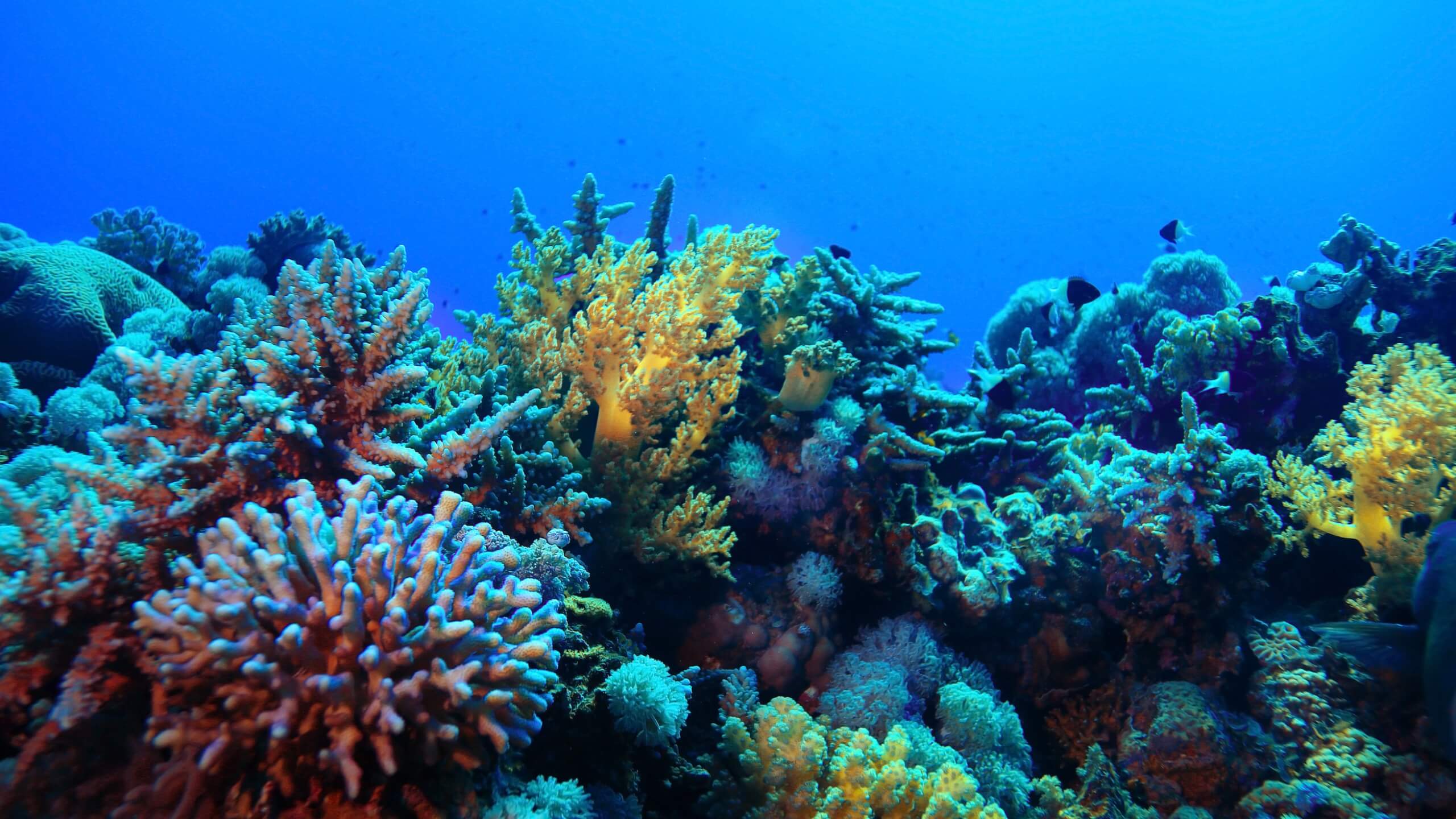Coral reefs are complex structures underwater deposited by corals. Corals are immobile small marine invertebrate animals that take root on the ocean floor. They are colonial animals and classified in a separate phylum Cnidaria and class Anthozoa. Coral reefs are themselves animals and can not produce oxygen. However, an algae known as zooxanthellae live within their tissues in a symbiotic relationship that produces oxygen.
Coral reefs also provide habitat, food sources, and flourishing grounds to numerous species of marine organisms, including algae and other phytoplanktons (photosynthetic organisms). These algae and phytoplanktons it inhabits actually produce oxygen. In this article, you will learn about how much oxygen coral reefs produce and how photosynthesis occurs in them.
How Much Oxygen Does Coral Reefs Produce?
Coral reefs can not produce oxygen themselves. They provide habitat and flourishing grounds to many photosynthetic marine organisms that produce oxygen. An algae known as zooxanthellae lives within the tissues of coral reefs in symbiotic relationship. This algae produces oxygen via photosynthesis. So they have an indirect role in oxygen production.
Also read: Why are coral reefs important to the ecosystem?
It is estimated that about half of the Earth’s total oxygen comes from the ocean, which is mostly produced by the photosynthetic marine organisms (algae, drifting plants, and photosynthetic bacteria). Prochlorococcus is a marine cyanobacteria (photosynthetic bacteria) that produce about 20% of all the oxygen in our biosphere. However, marine life needs oxygen for cellular respiration and consumes roughly the same amount that comes from the oceans.
How Do Coral Reefs Produce Oxygen?
Coral reefs are themselves invertebrate animals and can not produce oxygen. However, 25% of all marine life live in or depend on coral reefs including algae and phytoplanktons.
Zooxanthellae is a photosynthetic algae that lives in the tissues of most reef building corals. This algae and coral reefs have a symbiotic relationship. Coral reefs provide them a protected habitat while zooxanthellae provide them food that it produces through photosynthesis.
Zooxanthellae absorb sunlight and take carbon dioxide to produce glucose, glycerols, and amino acids through photosynthesis. It then transfers about 90% of these products to the tissues of the host (corals). In this process of photosynthesis, zooxanthellae not only produce oxygen as a byproduct but also help the host coral to remove its wastes. So zooxanthellae provide the actual driving force for the growth of coral reefs.
What Is The Role Of Algae In Oxygen Production On Coral Reefs?
Algae play a vital role in oxygen production on coral reefs. They are themselves invertebrate animals and can not produce oxygen. Zooxanthellae are golden-brown, unicellular algae that either live within the tissues of coral reefs or free in the water column as phytoplankton.
Also Read: Why are coral reefs dying?
It performs photosynthesis and makes oxygen as a byproduct. Zooxanthellae and coral reefs have a symbiotic relationship. Coral reefs provide them habitat and algae provide them food, oxygen, and help to remove its waste products. In fact, the significant striking colors of coral reefs are also because of zooxanthellae.
Factors That Affect Oxygen Production In Coral Reefs
The following are the major factors that affect oxygen production in coral reefs:
1. Change in Water temperature because of climate change
Changes in water temperature because of climate change are causing the corals to expel zooxanthellae from their tissues. When this happens, the corals lose their major food source.
The oxygen production is also affected because zooxanthellae was responsible for the process of photosynthesis within coral tissues. When it becomes separate from corals, photosynthesis can no longer occur and no oxygen is produced.
2. Ocean acidification because of increased CO₂ level
Increasing CO₂ levels in the atmosphere causes the acidification of oceans (oceans are a major carbon sink and absorb the rising CO₂). Increased absorption of CO₂ changes the chemistry of ocean water and reduces its pH (lower pH means the water is more acidic). It affects the availability of carbonate ions, which corals need to develop and maintain their calcium-carbonate skeleton.
It has a great effect on the overall health of coral reefs as well as on the growth and productivity of algae within their tissues to produce oxygen.
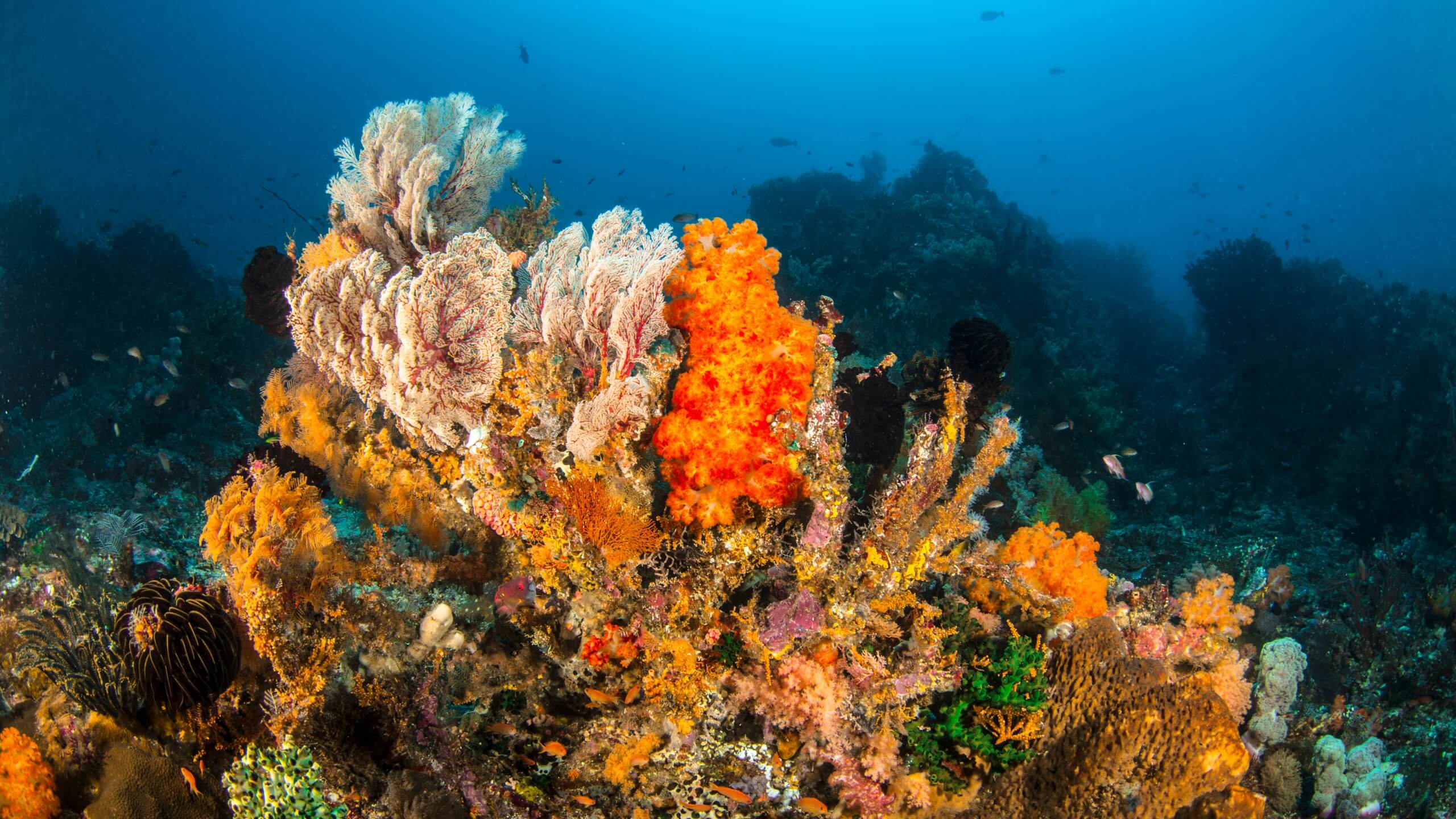
3. Other factors
Other factors include nutrient availability because of pollution from sewage discharge or agriculture runoff, sedimentation from coastal development, light intensity, and increasing salinity of ocean water.
All these factors affect the overall health of coral reefs and disturbs their delicate symbiotic relationship with zooxanthellae. Because of all these factors combinedly, the growth of algae within the tissues of corals is affected and so their oxygen production capacity becomes affected.
What Is Coral Bleaching? And How Does It Affect Oxygen Production In Coral Reefs?
Coral bleaching is a phenomenon in which corals expel algae (zooxanthellae) from their tissues and lose their color and turn white. It occurs when the temperature of the ocean increases due to climate change and the water remains warm for an extended period of time.
Coral bleaching has a significant effect on the overall health of coral reefs. The algae lose their habitat and become less effective to perform photosynthesis and produce oxygen. The corals lose their primary food source (corals consume about 90% of the organic materials zooxanthellae produce through photosynthesis). If the corals stay without zooxanthellae for too long, it would die.
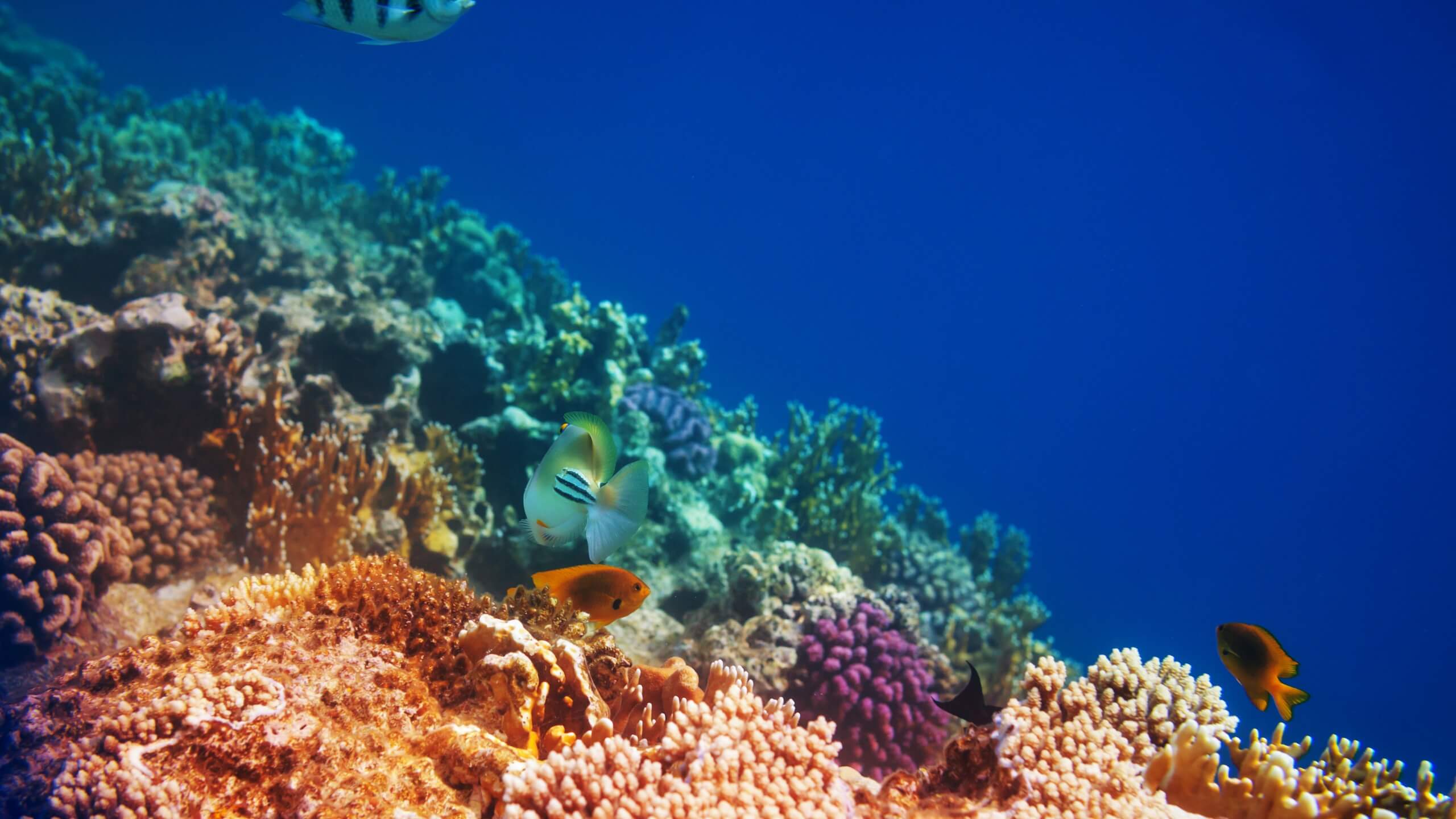
Coral bleaching also has a great effect on all marine life that depend on healthy corals to survive. Reduced oxygen level in the surrounding water can lead to anoxic conditions for marine life. If not recovered, bleaching could lead to the death of corals. Eventually all the marine may suffer and die that depends on healthy corals for survival.

